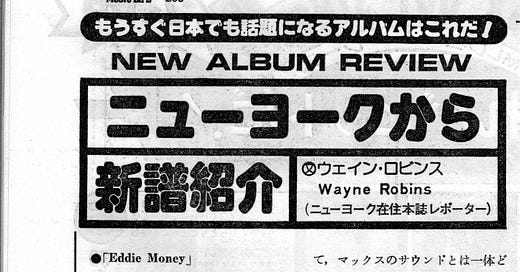Did you ever notice how many good songs there are about Japan? "Discovering Japan," with its nightmare time zone confusion, may be my favorite Graham Parker song. "Big in Japan" stands out so much from Tom Waits' catalog that it was a meme before there were memes: Every precocious loser that's halfway somewhere is big in Japan. The Vapors, one hit wonders of the early new wave, had a most likeable song, "Turning Japanese" in 1980. And if I had to choose a favorite Wilco song, after "Standing O," it would be "Impossible Germany"...wrong former Axis power, sorry.
I was an early Japanophile. When I was in fifth grade, our class had an experimental Spanish program. I loved it: We learned a lot of words, but conjugation of verbs and conversational Spanish would have come the following year. But they discontinued the program. I was interested in all languages. Dover books circa 1960 had a series of pocket sized paperbacks for travelers, " Say It In..." I eagerly bought a number of these,in…
Keep reading with a 7-day free trial
Subscribe to Critical Conditions by Wayne Robins to keep reading this post and get 7 days of free access to the full post archives.



